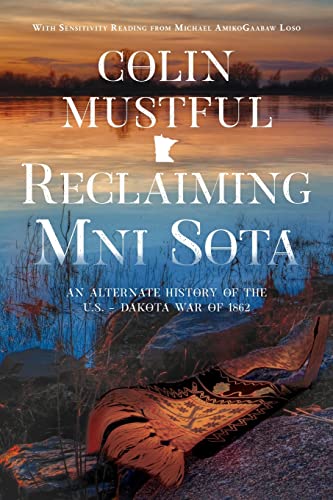Reclaiming Mni Sota: An Alternate History of the U.S. – Dakota War of 1862
In 1862, the Ojibwe and Dakota tribes of what is now Minnesota were being forced off their land despite solemn treaties with the U.S. government. Facing starvation, the tribes united and attacked white settlers and U.S. Army outposts. An estimated 500 military and civilians were killed, as well as an estimated 200 Native Americans, including 38 men hanged, the largest one-day execution in U.S. history.
Mustful offers an “alternative history,” based on facts but “not meant as an indictment on any one person or group of people.” To accomplish this aim, he gives us two protagonists, WaabiskiMakwa, called Waabi, a young boy of the Ojibwe tribe, and Samuel Copeland, whose family can no longer survive in their played-out patch of Vermont farmland and heads for what they’re told is rich “free” land in the Minnesota territory—free because it was taken from Waabi’s people.
Inevitably, Waabi and Samuel’s fates collide in battles marked by atrocities on both sides. The fact that these two decent young men, both fatherless and sharing the same dream—living off the land—create a sacrificial friendship doesn’t blunt the irreconcilable opposition of their people.
Mustful exaggerates the numbers and suffering of settlers held hostage by the tribal forces and doesn’t cover the ferocity of the U.S. government’s reprisals: the Dakota tribes driven to reservations, losing their homeland forever. However, in comparing the personal tragedies of Samuel and Waabi, we can experience a constant, tragic theme of human history: that there is never enough land for all, and the stronger will ignore any semblance of justice by taking it from the weaker.










